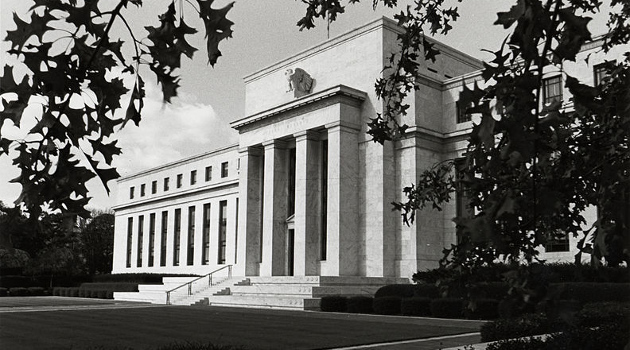Originally published by Western Journal on November 5, 2019.
President Donald Trump has been highly critical of the Federal Reserve, and now we know he is right in at least one important way. Luckily, Republicans in Washington are responding by providing the GOP with the legal ammunition it needs to stop the Fed’s lawlessness once and for all.
Earlier this year, Republican Sens. Mike Crapo of Idaho, David Perdue of Georgia, Mike Rounds of South Dakota and Kevin Cramer of North Dakota sent a letter to the Government Accountability Office asking it to investigate whether the Federal Reserve is violating the law.
At the end of October, the GAO delivered good news. It said that some of the Fed’s decisions are “designed to implement, interpret, or prescribe law or policy” and thus should be submitted to Congress for review.
In particular, it singled out the Fed’s issuance of “Supervision and Regulation guidance memos,” which were released without being submitted to Congress or the Office of Management and Budget as the 1996 Congressional Review Act demands.
This ruling from the GAO presents the best hope to rein in the Fed’s seemingly unchecked power that Congress has seen in years. After all, the CRA that the GAO cited states that, if a rule is disapproved after going into effect, it is “treated as though [it] had never taken effect.” This means that Congress should be able to claw back regulatory powers from the central bank in one fell swoop.
While this revelation presents great news, Congress cannot settle with the supervision and regulation memos. There are plenty of other Fed activities that violate the law and deserve to be addressed.
One of the most egregious examples they should look at is the Fed’s planned real-time payment system called FedNow, which would compete directly with private companies that have already built out such systems.
Former Congressman Ron Paul said that, “if implemented, [FedNow] will be just as damaging to free-market competition and the economy at large as it will be to balance of power in Washington.”
He’s right. Banks and consumers already have plenty of options at their disposal for paying people in real-time (see: The Clearing House’s RTP, Venmo, and Zelle). The Fed has no legal right to undercut those viable private businesses just to increase its personal power.
The Monetary Control Act says that the Fed can only involve itself in the payment industry when “the service is one that other providers alone cannot be expected to provide with reasonable effectiveness, scope, and equity.” Beyond that, though, FedNow also similarly violates the Congressional Review Act.
“Under the Congressional Review Act, OIRA must determine whether an issued rule has an economic impact of $100 million or more, impacts prices, or has a significant effect on competition. Agencies must also submit any major rule to Congress and the Government Accountability Office,” said Ike Brannon, a former senior economist for the U.S. Congress.
“The Fed’s foray into the real-time payments market satisfies all of these criteria for review. Despite this reality, the Fed did not provide a cost-benefit analysis of its action or submit it to OIRA.”
This is unacceptable and Congress can’t let it stand.
The Federal Reserve is out of control in several areas. It already funds the Consumer Financial Protection Bureau, which writes expensive regulations that harm American consumers and businesses. It is incapable of setting market interest rates or achieving its dual mandate of maximum employment and stable prices.
And as the GAO found, it is imposing “forward-looking supervisory expectations” that cost American banks (which pass those costs on to consumers).
This isn’t the way the system is supposed to work. Given the recent news from GAO on the illegality of recent Fed actions, Congress can, and must, reassert its oversight powers over the central bank before this window of opportunity closes.
———
Image credit: Federal Reserve | United States government Work.

